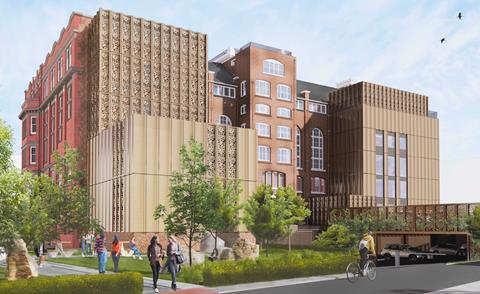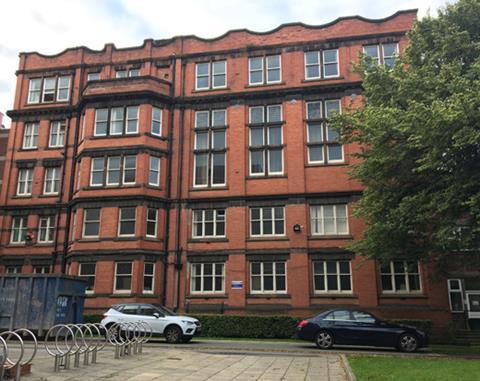Work involves repurposing and extending early 1900s buildings into new home for School of Environmental Sciences
Sheppard Robson has been granted detailed planning permission to convert two early 1900s buildings that are part of the University of Liverpool campus into a new base for its School of Environmental Sciences.
The project will reuse the red-brick Derby and Hartley buildings to the north-west of the university’s city-centre campus, adding a six-storey circulation core to provide passenger and goods lifts, as well as wheelchair access across existing split levels.
Main contractor for the project is University of Liverpool Construction Company, which is a wholly-owned subsidiary of the university; Booth King Partnership is structural engineer; AA Projects is quantity surveyor.

The new core will be constructed on the western façade of the Derby ��ɫ����TV, while smaller-scale extensions for plant rooms and extract ducting will be added to the Hartley ��ɫ����TV. The buildings – neither of which is listed – originally housed the university’s School of Zoology, laboratories, two lecture theatres and academic offices.
Sheppard Robson said its proposals, which received conditional approval from planning officers exercising delegated powers last week, would deliver refurbished buildings containing a diverse range of teaching and research laboratories, as well as academic offices, tutorial and seminar rooms and break-out spaces.
As part of the project, entrances along Brownlow Street will be reopened and remodelled, and a new arrival space will connect the existing buildings with a foyer featuring social and collaboration areas – as well as some of the school’s vast collection of minerals and other scientific objects.

Sheppard Robson said it would preserve key historic features such as ornate mosaic floors, internal glazed bricks, balustrades and stairs.



























No comments yet